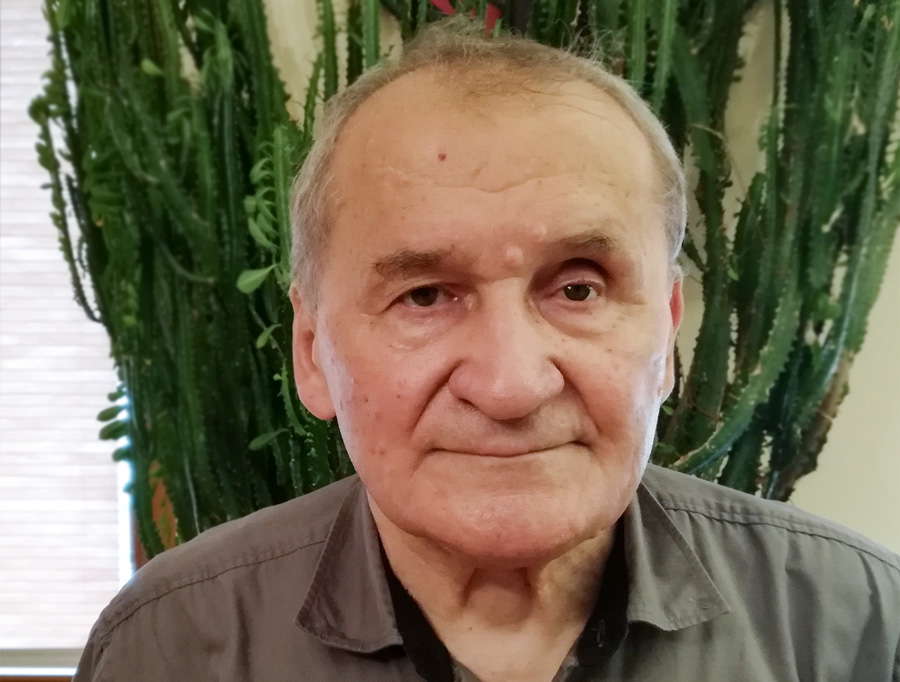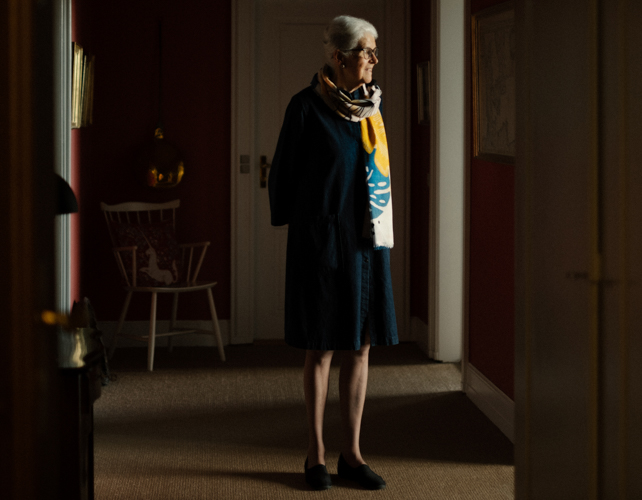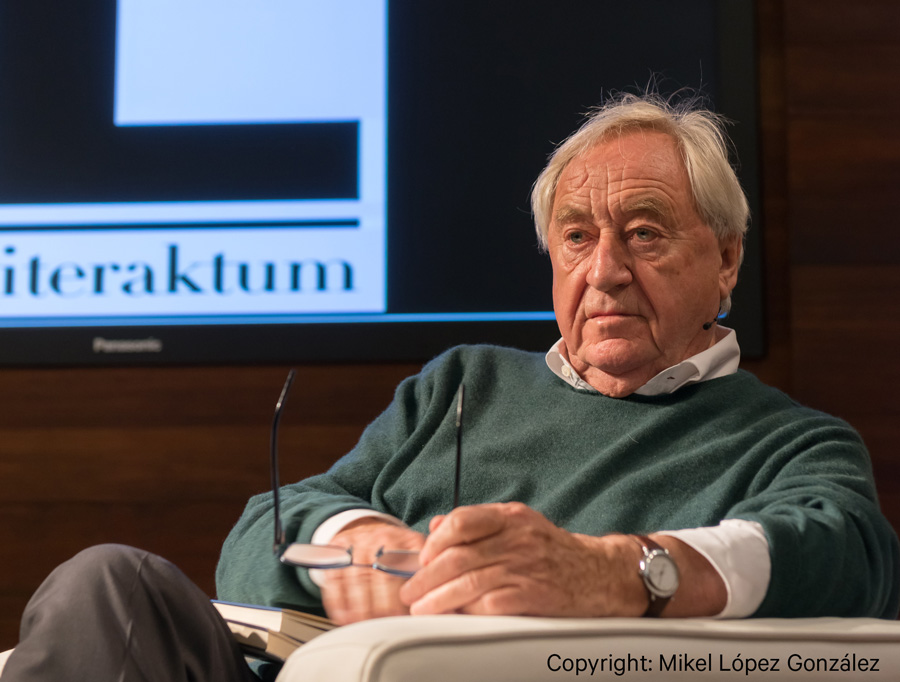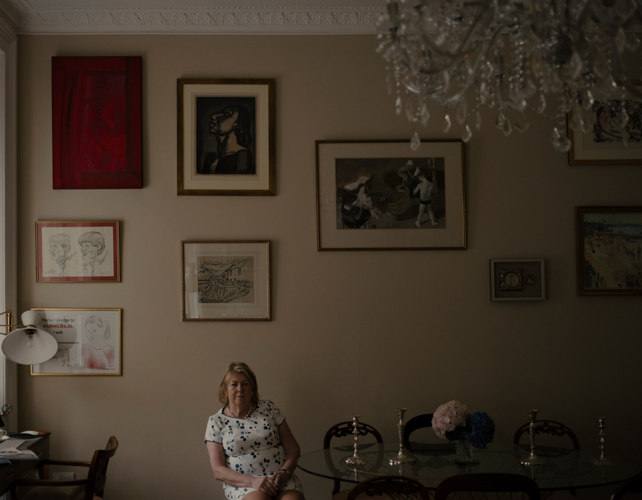Henryk Wujec was one of Poland’s most important opposition leaders in the time of the fall of the iron curtain and served as a politician and member of the Sejm. Born in Podlesie, Biłgoraj County, Poland in 1940, he recently passed away in August 2020, and was posthumously awarded with the Order of the White Eagle – the highest Polish decoration.
As a child, Wujec was interned in and survived Majdanek concentration camp. After he graduated from the University of Warsaw with a degree in physics, he continued postgraduate studies in electron technology in 1970. Although a physicist by profession he got increasingly more involved in politics and rose to became a prominent social activist in the democratic opposition of Poland and a member of the Solidarity movement. In his leading role there, Wujec participated in the roundtable talks of 1989 and started to work full-time in politics, as a deputy minister in the Jerzy Buzek government and as an adviser to President Bronisław Komorowski.
In this conversation with Adam Jarosz from March 2019, Henryk Wujec gave his personal account of the Polish “Solidarity” movement and the many struggles they were to face on the way towards Polish democracy.
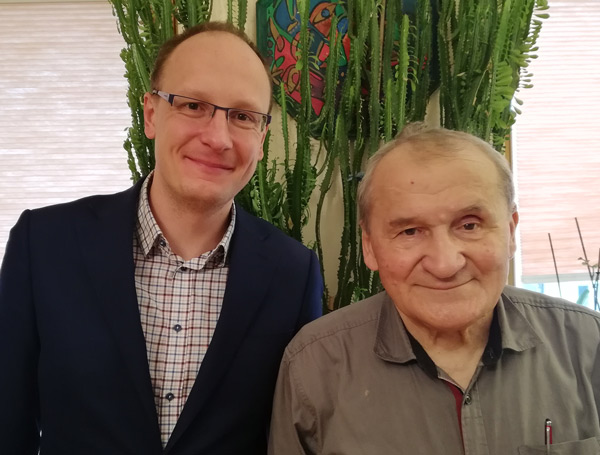
Henryk Wujec was interviewed by the Polish political scientist Adam Jarosz.
Interview Highlights
The day that Stalin died
“That day, one of the students was reading out the news and we stood in the school corridor and listened to it. The mood was serious because it was announced that Comrade Stalin had died. I’m not sure if the teachers were crying, but it’s possible that they did. The mood was serious, we sang some songs. We always sang a song during those ceremonies. […]
We went into our classroom and a friend of mine whom I liked very much, who I used to share a bench with, said: “Look at that wall, what’s written there?” And written on it was: “Long live Comrade Stalin, the ensign of peace, the chief of humanity, the role model, the leader etc” – all these adjectives. My friend said: “It says ‘long live’, while he is dead. You should tear it off, so that is says: ‘Comrade Stalin is dead’.” And I said: “You’re right”. I was clever, so I climbed on a tiled stove and ripped off the letters “ch”, thanks to which the inscription was changed to: “Comrade Stalin is dead” [“niech żyje Stalin” to “nie żyje Stalin”]. When our teacher came in and saw it, she turned pale, froze, speechless, because she was mature and knew what that could lead to.”
On social activism
“I am already a pensioner. But I feel personally, emotionally attached to non-governmental organisations and to those activists who, all the time, regardless of the regime and the government, are trying to do something sensible in their environment, on their territory. I have a lot of such friends. Many of these people were activists of Solidarity, but they did not go into politics or to local governments. Instead, they stayed at the places where they are now, and are still trying to build a civil society.”
On anti-Jewish developments in the 1960s
“About September 1967, I met my current wife, whose maiden name is Ludwika Okręt, and she is of Jewish descent, but that came to light only later because then nobody talked about it. […] And it was only this anti-Semitic campaign that forced us to define ourselves. And that element was significant, and then I felt morally obliged not to let them because they wanted to expel everyone abroad, that my fiancée would go abroad. [….] We were together. Well, of course she didn’t leave, and her mother didn’t either, but her aunt did. Almost all of her family was killed in the Holocaust. I used to go to Warszawa Gdańska railway station to say goodbye to those who were leaving [the country], my friends etc. It all disturbed me. So that was a moment of a huge jump into politics, but politics in the sense of disagreement with what was happening.”
On supporting the 1976 workers‘ protests in Radom and Ursus
“Anyway, they [the workers] were so crude, ill-dressed, tearful. They were terrified that the sentences would be high. For nothing, because there was nothing there, there were no charges. They just stopped a train. Can someone be sentenced to five years in prison for that? And we felt the need, such a drive, such a pressure, to approach them, to talk to them, and to tell that we would help, that there would be lawyers, because there were lawyers already, a whole group of lawyers who were ready to defend people for free. And it happened there, and then that spark jumped between these two groups. And in a sense, we did what we had considered before, but it hadn’t been possible before. We knew that the reason for our defeats was that everyone protested separately – first students, then workers, and that the authorities divided us to deal with us separately. So we understood that this barrier between intelligentsia and workers had to be overcome.”
